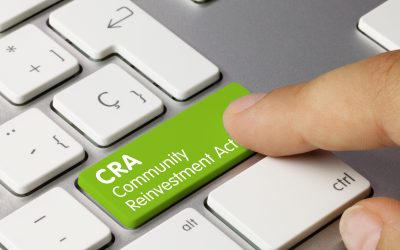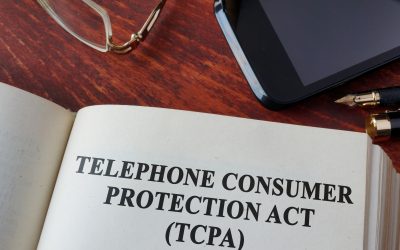In Part I of this multi-part Fair Lending article, we considered the topic of Redlining. In Part II, we’ll consider one of the newer Fair Lending hot topics – Appraisal Bias.
Appraisal Bias is the practice of an independent appraiser placing a value on a property owned by a Protected Class person (for example) that is lower than the appraiser would place if the property were owned by a Non-Protected Class person (for example). The example uses race of the property owners as the protected basis, but it could also be the ethnicity of the owners or the racial/ethnic makeup of the neighborhood. The issue is that appraisal bias amounts to illegal discrimination within the appraisal process. This invokes the Equal Credit Opportunity Act and even UDAAP to the extent it is unfair to consumers.
Important to Consumers and Financial Institutions:
Appraisal bias is an important topic to consumers – especially minority consumers — because appraisal bias has a significant impact on generational wealth building. Obtaining an appraisal of value is a key step in the purchase and financing of homes, and the result of the appraisal can cause changes in contract price. Over time, downward changes in home values impact generational wealth. Appraisal bias is also an important topic to financial institutions because an appraisers alleged discriminatory practices can create a fair lending issue for the bank.
We first started hearing about appraisal bias a few years ago, and the topic has ballooned in importance, to the point where the Interagency Fair Lending webinar hosted by the Federal Reserve in December 2022 seemed to be dominated by the topic. Sections presented in the webinar included:
HUD: Appraisal Discrimination: Trends and Risk Mitigation
CFPB: Appraisal Bias Action Update
FHFA: Action on Appraisal Bias
During this webinar we learned about the Interagency Task Force on Property Appraisal and Valuation Equity (PAVE) (see pave.hud.gov) which has suggested some risk management approaches to address appraisal bias – one of which is to make the appraisal industry more accountable. We also learned of the first uniform appraisal dataset of aggregate statistics regarding single family appraisals, updated 12/15/2022, which can be found here: https://www.fhfa.gov/DataTools/Pages/UAD-Dashboards.aspx and the related blog “Exploring Appraisal Bias Using UAD Aggregate Statistics.”
In response to the perceived appraisal bias in the marketplace, a number of agencies wrote to The Appraisal Foundation (TAF) – a non-governmental entity that sets appraisal standards – in early 2022 to call attention to the appraisal bias issue and call out the lack of training the TAF provides on the requirements of federal law regarding discrimination.
The Appraisal Industry:
As with any debate or argument there is a flip side. The appraisal industry, governed by The Appraisal Foundation’s Appraisal Standards Board (ASB) publishes the Uniform Standards of Professional Appraisal Practice (USPAP). The current edition is the 2020-21 edition which would have expired 12/31/21, but was extended one year to 12/31/22, and then extended another year to 12/31/23, to allow the ASB extra time to address the appraisal bias topic.
However, blogs and articles from appraisers and appraiser groups over the past year have politely reminded the public that appraisers have to be independent – that the appraiser’s role is to provide an impartial, objective, and independent opinion of a property’s value. After the financial debacle in 2008, appraisers were criticized for lacking independence and appraising properties based on outside influence… thus contributing to the runup of property values. Fifteen years later appraisers are asking about that same independence. Additionally, appraisers, appraiser groups, and real estate groups have pointed out flaws in the most-often-cited “study” regarding Appraisal Bias (for example, see: https://www.workingre.com/appraisal-bias-the-inconvenient-truth-of-a-flawed-report/), and have requested that studies be performed on larger datasets.
Moving Toward a Solution:
Despite a lot of discussion on the appraisal bias topic, few solutions have been proposed. Among the solutions that have been proposed are:
- Increasing the diversity of home appraisers.
- Increasing the use of technology in home appraisals.
- Increasing buyer education in terms of challenging appraisal values
- Increasing the amount of appraisal bias education in the fair lending curriculum in financial institutions.
- Increasing the amount of fair lending training in the appraiser course curriculum.
Additionally, on 3/1/2023 FNMA (Fannie Mae) announced that they’re moving away from implying that an appraisal is a default requirement. They are allowing alternative appraisal methods, such as “Value Acceptance + Property Data” and/or “Hybrid Appraisals.” (https://capitalmarkets.fanniemae.com/mortgage-backed-securities/single-family-mbs/updates-regarding-valuation-modernization)
Financial Institutions:
Financial institutions involved in residential lending should review their policies, processes, and procedures surrounding ROVs (Reconsideration of Value) requests, appraisal reviews, and the level of QC (quality control) in the entire appraisal system at the institution. They should also have processes in place to stay on top of industry changes, such as the notice released by Fannie Mae on 3/1/2023 regarding alternative appraisal methods.
All of the above are viable solutions, and when taken together should move the needle – in terms of both awareness and outcomes – and make appraisal bias a lesser issue.
Much more will be written on the appraisal bias issue as the proposed solutions continue to be evaluated and additional studies on larger datasets are conducted. Between now and then, financial institutions need to ensure that this topic is considered in the Fair Lending Risk Assessment, in 2nd line Compliance Monitoring Programs, and in 3rd line Internal Audit Programs.
If you would like your Fair Lending Program, or an element thereof, reviewed or audited by an experienced team, contact M & M Consulting, LLC via our website www.mandm.consulting





0 Comments